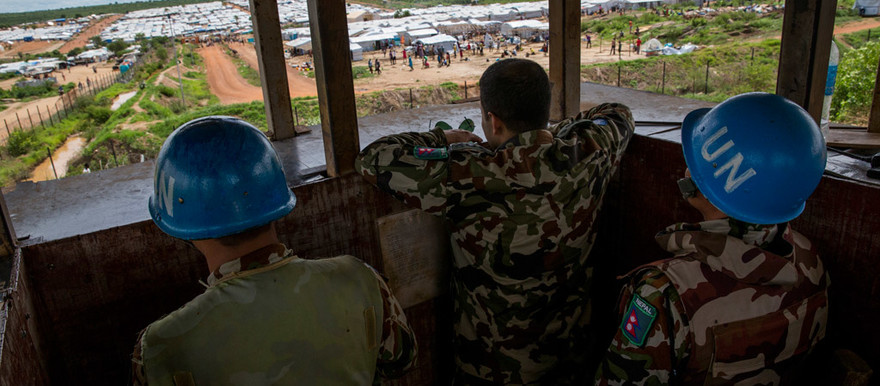Members of the security services in South Sudan are allegedly continuing to restrict movement of members of the internally displaced persons in protection of civilian camps, contradicting statements alleging a handing over of a police post previously taken over by the government forces during July clashes .
Circumstances under which restrictions are made remain unclear. Repeated attempts seeking comments from media and communications department with security service could not succeed. The emergency response team also known as N4, the body set up by members of the internally displaced persons in the protection of civilian camp to control unnecessary confrontations and fighting among the IDPs says men are still not being allowed to move freely into and outside protection camp.
A community leader in an interview in reaction to government statement that the security at check-point area in Juba had improved said the post remains under the control of government soldiers who are continuing to restrict movement of the members of the displaced. “Soldiers stationed at check-point are registering the names of anyone who leaves the camp and warned them, especially men not to return”, said the community leader.
He further added that the last three days after a delegation of UN Security Council visited Juba saw some men unable to leave the camp. “We are authorizing students who were not here before July incident to go back to school” he added. The community leader also confirmed that girls under the age of 18 years are not allowed to leave the camp in fear of rape by government soldiers at check-point. Some sources with international organisations managing the camp, including data collectors, claimed seeing men moving outside these three days but never returned.
The gate of the United Nations mission in South Sudan adjacent to protection of civilians’ camp at Jebel area remained closed for nearly two months after July fighting at presidential palace which left many dead and displaced several others to neigbouring countries in region in search of safety



